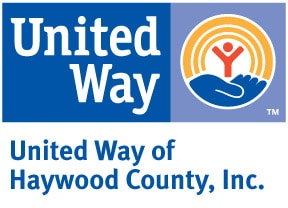- 828.246.0332
- Admin Hours: Mon - Fri: 10:00am - 4:00pm
(Editor’s note: This is the 14th story in a multi-part series about drugs in Haywood County.)
There aren’t many who have a harder lot in life than those with a felony drug conviction. The punishment continues long after incarceration.
While there are people who get out of prison with no desire to get their life in order, those who do find obstacles around every corner. From limited housing opportunities to the stigma that comes with a drug conviction, things are tough.
“A lot of people, once they have a record, can’t find work anymore, and they’ll have trouble getting housing or getting back into school,” said Harm Reduction Coalition Communication Coordinator Jessie Castillo.
Haywood County Social Work Services Director Donna Lupton knows well the struggles of those living more locally who want to get their lives back in order.
“It might be when they were in their 20s they had a conviction,” she said. “And now they’re 40 and have two kids, and finding a place for them to live is even more difficult.”
Lupton added that those who find themselves in that precarious position aren’t always bad people.
“That’s what I don’t think people understand,” she said. “It’s good people who make bad choices based on a lack of opportunity.”
Jeremy Parton tries to provide some of those much-needed opportunities through the Haywood Pathways Center, a faith-based shelter that houses homeless Haywood County residents, as well as those recently released from jail or prison.
“We work to help decrease the recidivism rate in the county,” Parton said. “They may not have a safe place to go once they get out of incarceration. We get them here and get a little more foundation under them before they get out.”
Parton said many who come through Pathways’ doors suffer from some kind of an addiction problem.
“It’s probably 90 percent for the folks who come through our doors either are having or have had some kind of substance abuse issue,” he said.
Although Parton acknowledges that Pathways can’t meet the needs for those going through withdrawals who have serious medical or rehabilitation needs, the facility does require recovering addicts to attend recovery meetings and seek adequate treatment.
He added that Pathways is considered a 100 percent no-tolerance facility, but the group has had to change its policy slightly to truly reach those in need.
The shelter used to not admit people who tested positive for drugs or alcohol, but now it will admit them and help them get the treatment they need as long as they show they are committed to getting their lives back together. He said it’s all about getting people help.
“We found out we really weren’t reaching the people we need to reach,” he said. “Once we determine they’re not a danger to themselves or someone else, we’re going to give them a chance.”
Sharing is Caring!
Mandy Haithcox,
Executive Director
179 Hemlock Street
Waynesville NC 28786
mandy@haywoodpathways.org
828-246-0332

